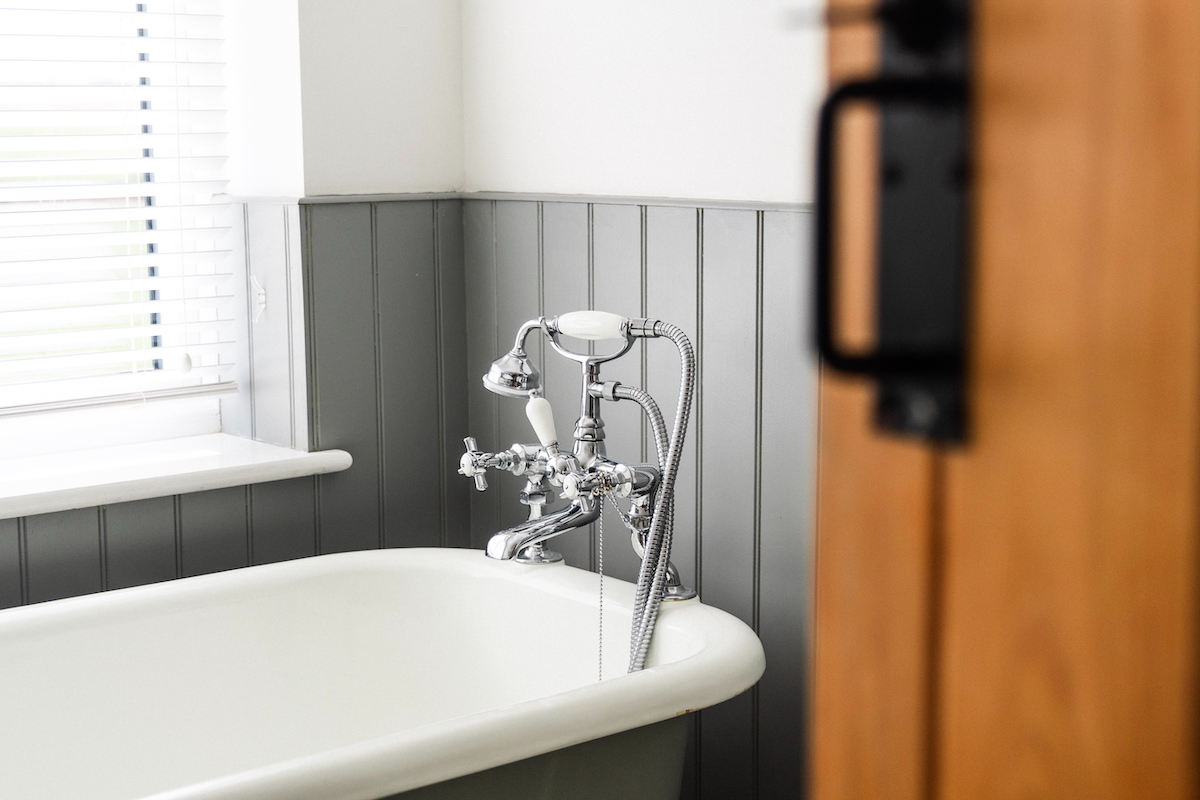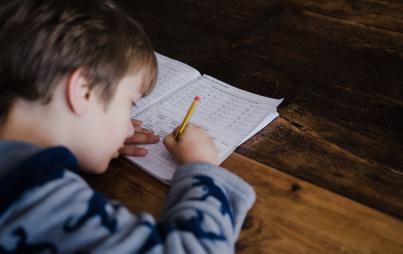
Photo by Dan Smedley on Unsplash
I wake up every morning at seven, and my partner and I split morning chores (pets, making coffee, putting cereal bowls on the table) until we sit down to have breakfast with our four-year-old. After breakfast, my partner hurriedly gets dressed and out the door for work, while I am thoroughly absorbed by taking care of our kid, the house, the animals, and usually trying to complete a short list of work tasks. Recently, I’ve considered taking up a morning meditation practice, but there’s just one problem, there’s no freaking time. Unless I wake up before everyone (and let’s be real, if I get up, the kid and the dog are getting up too) and choose to lose sleep, this small act of self-care is unavailable to me for the time being.
We love to encourage parents to develop better self-care routines. Hell, I’ve advocated for parental self-care on this very website. But the push for self-care very quickly veers into shaming those who won’t “take the time” to “prioritize themselves.” Not only is this unhelpful, but it also fails to acknowledge that for many parents, the realities of our lives place us in a world of impossible decisions.
Blaming people who deprioritize their own comfort and happiness to keep their families afloat doesn’t help.
Look, I get it. We’ve all heard the adage, “you have to put your own oxygen mask on first.”
The issue is that plane crashes aren’t part of everyday life; they’re highly specific situations that, statistically, the average parent is not likely to be in with their child or children. And they don’t make a great metaphor for what we’re doing on a random Tuesday. You put your own oxygen mask on first because you need not black out while trying to get your kid’s on them, because not doing yours first could mean you both die.
Getting your kid to school on time rather than taking that shower you really need? Totally different!
For a more intense scenario, let’s talk about the fact that parents facing food insecurity often feed their children first, even when it means going hungry themselves. Or they may subsist on junk while doing their best to feed their kids fresh food. Is it an ideal situation that’s good for everybody? No, it is not. But it’s also one that, as a parent, is understandable. We have a responsibility to our kids, and we want to do our best for them.
It might be true that comfortably middle-class parents must choose self-care to implement it, but for the rest of us, it isn’t nearly so simple.
You Might Also Like: Some Days, I'd Like To Be Remembered As The Fun Parent — But I'm Not
A lack of affordable and accessible childcare, lack of community and peer support, financial instability, and many other marginalizing factors, push many parents to a somewhat ridiculous lifestyle in which we are perpetually trying to do too much with not enough time and energy. We are continually coming up short, and especially with very young children, it gets very overwhelming. Which, yes, makes the need for self-care higher than ever; of course it does.
It’s also true that years of “mommy guilt” and intensive parenting did push parents (mostly moms!) to extremes of self-denial for their kids. And that has not been great!
When I have five things to do and only enough time to do three of them, I have to decide which items on my list to drop just to make it through the day.
When I have to pick between doing what’s best for my kid and doing what’s best for me, most of the time, I’m going to pick my child. Because she did not choose to be here, she did not ask to be born into this family, and it is my responsibility to put her needs first to the best of my ability and give her a good childhood so that she can grow into a functional, happy, healthy, adult.
When we tell parents they aren’t doing enough to take care of themselves, it is just another form of shaming.; it’s another layer of guilt and bullshit that makes parents' lives harder, not easier.
In my own life, my partner works full time, and I am homeschooling our preschool-aged kid, but I also freelance so we can pay the bills and keep a roof over our heads. As a low-income family, we work hard to keep our expenses relatively low, but money is always tight, and I have to work whenever I can. Next year our child will likely go to kindergarten, which may free up some time and simplify my life a bit. But in the meantime, things are pretty rough.
I feel guilty for not giving my kid as much one-on-one attention as she craves and guilty for not working more to put our little family in a better financial position.
I used to try to implement more self-care type things after putting my kid to bed, but that quickly added up to a lot less sleep, which made me less functional during the day, sick more often, and frankly a kind of crappy parent.
A couple of weeks ago, I was at therapy, and my therapist asked when the last time was I did something nice for myself. I mentioned that I did take a long bath just the day before, but I felt terrible for doing it, and I only did it because I'd hurt my back.
My therapist gently chided me and reminded me that I should know that it’s ok to take care of myself, and it’s even ok to do things just because I enjoy them!
I appreciate it in a sense. But I still have to keep the lights on. Lunches do need to be made. Dishes do need to be washed. Every time I “just take some time for myself,” something else has to wait. Which means it isn’t something I can do as often as I’d like, or as often as my therapist recommends.
Before you tell a struggling parent to take time for themselves, to practice better self-care, think about what you are suggesting and how it might work with their actual situation. Maybe you feel like you are just helpfully giving them permission to prioritize themselves. But especially for marginalized parents, these reminders often feel like just one more thing we’re failing at, even though we are doing the best we possibly can. Struggling parents need compassion and empathy (and childcare!), not more of the blame game for our imperfect lives.








